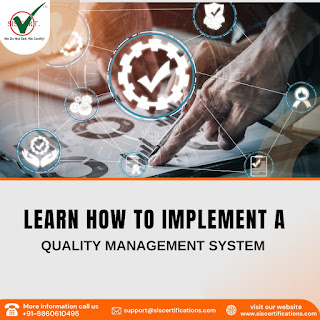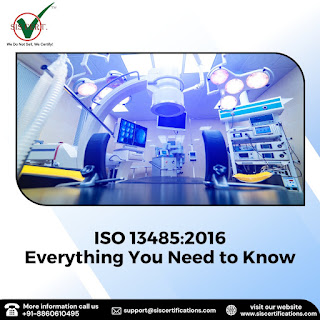Why do we need ISO 13485 certification
ISO 13485 is an international standard that specifies requirements for a quality management system (QMS) for medical device manufacturers and organizations involved in the medical device industry. The primary goal of ISO 13485 is to ensure that the organization's quality management system consistently meets customer and regulatory requirements. Here are the key requirements of ISO 13485 certification: Scope : Define the scope of the QMS, including the products and processes covered by the certification. Documentation : Establish and maintain documented procedures and records required by the standard. Management Responsibility : Top management must demonstrate their commitment to the QMS and take overall responsibility for its effectiveness. Resource Management : Provide adequate resources (personnel, infrastructure, and finances) for the effective implementation and maintenance of the QMS. Product Realization : This section covers the planning, design, development, and


